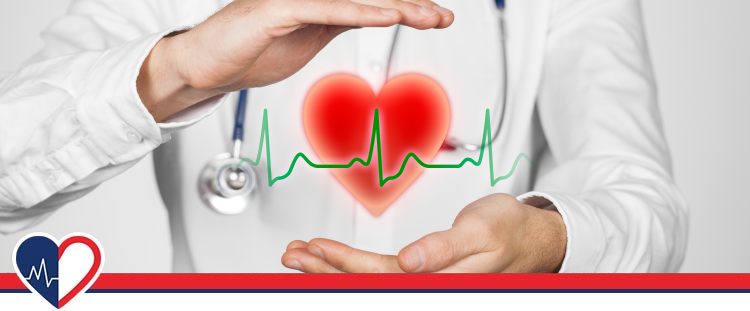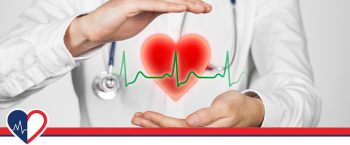What Are the Benefits of Having an EKG?
Having an electrocardiogram (EKG) offers several benefits, such as detecting heart problems early, monitoring existing conditions, and helping guide appropriate treatment. An EKG can identify irregular heart rhythms, heart attacks, or other cardiac issues that may not show obvious symptoms. At our urgent care clinic, Dr. Santanu Som, MD, DO, is available to assess your heart health and recommend an EKG to ensure timely and effective care. For more information, contact us or book an appointment online. We are conveniently located at 3117 Military Road, Suite 2, Niagara Falls, NY 14304.


Table of Contents:
How can an EKG help detect heart conditions early?
What benefits does an EKG provide in monitoring heart health?
Can an EKG prevent serious heart complications?
How does an EKG assist in diagnosing irregular heart rhythms?
Our facility is equipped with state-of-the-art EKG technology to record the electrical activity of the heart. This allows our healthcare professionals to gain valuable insights into your heart’s rhythm and function. By analyzing the EKG trace, we can identify various heart abnormalities that may indicate underlying conditions, ensuring you receive the right care without delay.
At Niagara Falls Urgent Care, we understand the importance of early detection of arrhythmias—irregular heartbeats that can manifest as too fast, too slow, or erratic rhythms. Conditions such as atrial fibrillation, bradycardia, or tachycardia can be identified through an EKG, allowing us to intervene promptly and help prevent complications like stroke or heart failure.
Additionally, our EKG services can detect signs of ischemia or reduced blood flow to the heart muscle, which is often a precursor to a heart attack. Recognizing these changes early can prompt further investigation and preventive measures, potentially saving lives. We can also uncover evidence of previous heart attacks that might have gone unnoticed, ensuring appropriate management and monitoring to prevent future incidents.
Structural abnormalities of the heart, such as hypertrophy or chamber enlargement, can also be spotted on an EKG. These findings may indicate high blood pressure or other conditions that require medical attention. Early detection allows us to address the root cause and prevent progression to more serious heart disease.
Our facility is equipped to perform EKGs, allowing us to assess the electrical activity of your heart. This test is crucial for detecting arrhythmias, or irregular heartbeats, which can be early indicators of underlying heart disorders. By identifying these issues promptly, we can implement timely interventions to help reduce the risk of complications such as stroke or heart failure.
In addition to diagnosing arrhythmias, an EKG can reveal signs of ischemia or infarction—conditions where the heart muscle does not receive adequate blood supply. This capability is vital for diagnosing heart attacks or identifying damage from previous cardiac events. Our skilled healthcare providers analyze the electrical patterns to determine the severity and location of these issues, guiding effective treatment plans tailored to your needs.
Moreover, as part of our commitment to preventive care, we offer EKGs as a baseline evaluation to detect potential problems before they develop into more serious conditions. Even if you are asymptomatic, an EKG can provide peace of mind or uncover hidden issues that may require further attention.
EKGs are crucial in identifying cardiac abnormalities that could potentially escalate into serious heart complications. By recording the heart’s electrical activity, EKGs offer valuable insights into the heart’s rhythm and structure, enabling our healthcare professionals to detect issues early and intervene appropriately.
Moreover, EKGs play a vital role in identifying ischemia, a condition marked by reduced blood flow to the heart muscle and often a precursor to heart attacks. By spotting ischemic changes early, our healthcare providers can recommend lifestyle modifications, medications, or even surgical interventions like angioplasty to enhance blood flow and prevent heart attacks.
EKGs also help detect structural abnormalities of the heart, such as hypertrophy or enlargement of the heart chambers, which, if unmanaged, can lead to heart failure. Our team at Niagara Falls Urgent Care can provide guidance on lifestyle changes, prescribe medications, or suggest other therapies to manage these conditions effectively and prevent their progression to heart failure.
While EKGs are powerful diagnostic tools, they offer a snapshot of the heart’s electrical activity at a given moment and may not capture intermittent issues. Therefore, we often use them alongside other diagnostic methods such as stress tests, echocardiograms, or Holter monitoring to provide a comprehensive assessment of heart health.
Dr. Santanu Som, MD, DO, uses EKGs to monitor the timing and strength of electrical signals that regulate heartbeats. By placing electrodes on the skin, we can capture a detailed visual representation of these electrical impulses as waveforms. This allows us to analyze the heart’s rhythm and function, identifying any abnormalities that may require further attention.
For patients experiencing symptoms such as palpitations, dizziness, or chest discomfort, an EKG at Niagara Falls Urgent Care can swiftly reveal conditions like tachycardia (fast heart rate) or bradycardia (slow heart rate). It can also detect premature heartbeats that may suggest atrial fibrillation or other arrhythmias, as well as heart blocks where electrical signals are delayed or obstructed.
At Niagara Falls Urgent Care, we are committed to utilizing advanced diagnostic tools like the EKG to ensure our patients receive the highest quality of care. If you have concerns about your heart rhythm or are experiencing related symptoms, our team is here to help with prompt and professional evaluation and treatment. For more information, contact us or book an appointment online. We are conveniently located at 3117 Military Road Suite 2, Niagara Falls, NY 14304. We serve patients from Niagara Falls NY, Lewiston NY, Sanborn NY, Walmore NY, Tonawanda NY, Sanborn NY, Model City NY, Youngstown NY, Ransomville NY, Grand Island NY and surrounding areas.







